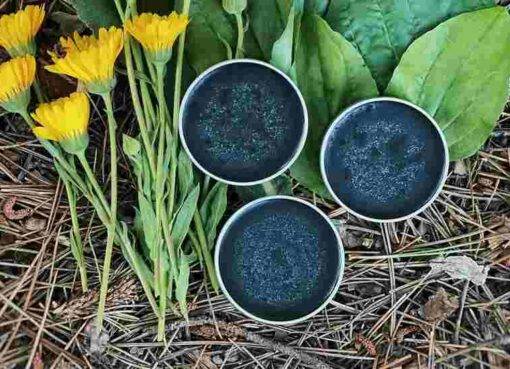Delta-8 THC: What You Need to Know
Delta-8 tetrahydrocannabinol, commonly referred to as delta-8 THC, is a psychoactive compound found in the Cannabis sativa plant, which includes both marijuana and hemp varieties. Although the cannabis plant naturally produces over 100 cannabinoids, delta-8 THC is not present in significant quantities within the plant. Consequently, concentrated delta-8 THC is often manufactured from hemp-derived cannabidiol (CBD).
THC Levels in Delta-8
Delta-8 tetrahydrocannabinol (delta-8 THC) is a naturally occurring cannabinoid found in the cannabis plant, albeit in relatively low concentrations. When discussing delta-8 THC, it’s essential to distinguish it from its more well-known cousin, delta-9 THC, which is responsible for the psychoactive effects commonly associated with marijuana. In this write-up, we’ll delve into how much THC is typically present in delta-8 THC products and why this matters.
1. Delta-8 THC and Delta-9 THC: A Chemical Comparison
Both delta-8 THC and delta-9 THC are forms of tetrahydrocannabinol. Delta-9 THC is known for its strong and intoxicating “high,” while Delta-8 THC produces milder and less intense psychoactive effects, making it a more subtle alternative. This distinction is primarily due to their slightly different chemical structures and receptor-binding affinities.
2. Delta-8 THC Concentrations in Nature
Delta-8 THC naturally occurs in the cannabis plant but usually in minimal amounts, often less than 1% of the total cannabinoid content. This low abundance makes it challenging to extract delta-8 THC directly from cannabis plants for commercial purposes.
3. Concentrated Delta-8 THC Products
Manufacturers create delta-8 THC products for people. They do this by changing other cannabinoids like CBD into delta-8 THC. This process can lead to delta-8 THC concentrations of 50% to 99% in the final product. The exact amount depends on how it’s made and the type of product.
4. The Importance of Delta-9 THC Content
The legality of delta-8 THC products is closely tied to the delta-9 THC content. In the United States, federal rules say that hemp products, like delta-8 THC, can’t have more than 0.3% delta-9 THC when measured dry. This is important to keep delta-8 THC from causing strong psychoactive effects like higher delta-9 THC levels can.
FDA Concerns and Awareness
- Lack of FDA Evaluation: Delta-8 THC products have not undergone FDA evaluation or approval for safe use and may be marketed in ways that pose potential risks to public health.
- Product Variability and Labeling: Concerns arise from the variability in product formulations, labeling discrepancies, varying levels of other cannabinoids and terpenes, and inconsistent delta-8 THC concentrations. Some products may misleadingly be labeled as “hemp products,” potentially confusing consumers who associate “hemp” with non-psychoactive substances.
- Marketing for Unapproved Uses: The FDA is alarmed by the proliferation of delta-8 THC products marketed for therapeutic or medical purposes, despite lacking FDA approval. The sale of unapproved products with unverified therapeutic claims is not only against federal law but can also endanger consumers, as their safety and effectiveness remain unproven.
Adverse Event Reports
From December 2020 to July 2021, the FDA received adverse event reports involving delta-8 THC products. Of these reports, 14 individuals sought treatment at hospitals or emergency rooms, while 19 experienced adverse events after consuming delta-8 THC-containing food products, such as brownies and gummies. Adverse events included symptoms like vomiting, hallucinations, impaired coordination, and loss of consciousness.
Between January 2018 and July 2021, poison control centers in the country reported 661 cases linked to delta-8 THC products. Most of these cases, 660 of them, happened between January 1, 2021, and July 31, 2021. It’s important to mention that 41% of these cases were not intentional, and many of them affected kids under 18 years old. In fact, 18% of these cases were so serious that they needed hospital care.
Psychoactive and Intoxicating Effects
Delta-8 THC induces psychoactive and intoxicating effects similar to delta-9 THC, responsible for the characteristic “high” associated with cannabis use. Concerningly, delta-8 THC products may expose consumers to much higher levels of the substance than naturally occurring in hemp cannabis extracts, making it crucial to consider safety implications.
Use of Potentially Harmful Chemicals
Delta-8 THC is rarely found in hemp naturally, so people use extra chemicals to make it. They might use household chemicals that can be unsafe. This process could create harmful stuff and things we’re not sure about. It depends on what they start with. Inadequate manufacturing control and unsanitary conditions further raise concerns about product safety.
Protection of Children
Manufacturers package delta-8 THC products in forms such as gummies, chocolates, cookies, and candies that may appeal to children. These products are readily available online and in various retail settings, sometimes without age restrictions.
FDA’s Role and Actions
The FDA is actively collaborating with federal and state partners to address concerns related to delta-8 THC products. They are closely monitoring the market for product complaints, adverse events, and emerging cannabis-derived products. When necessary, the FDA will warn consumers about potential public health and safety issues and take appropriate regulatory actions to ensure compliance with the law yet it is currently legal in 25 states.
Marijuana has been decriminalized in 23 states as of 1st September 2023
https://disa.com/marijuana-legality-by-state
Understanding the Legal Framework
1. The 2018 Farm Bill: A Key Turning Point
One of the primary reasons why delta-8 THC is legal in some contexts can be traced back to the Agricultural Improvement Act of 2018, commonly known as the 2018 Farm Bill. This legislation brought significant changes to the regulation of hemp-derived products. The Farm Bill redefined hemp as distinct from marijuana and removed it from the list of controlled substances.
2. Legal Hemp-Derived Delta-8 THC
Under the 2018 Farm Bill, hemp cultivation and the extraction of hemp-derived compounds, including delta-8 THC, became permissible, subject to specific regulations. As long as delta-8 THC is derived from hemp plants that contain less than 0.3% delta-9 THC on a dry weight basis, it is typically considered legal at the federal level in the United States.
3. State-by-State Variability
It’s important to note that while federal law permits hemp-derived delta-8 THC, individual states can have varying regulations and restrictions. Some states have chosen to align with federal law, allowing the sale and possession of delta-8 THC, while others have imposed stricter regulations or even banned it entirely. As of Aug., 23, it is legal to use in 25 states.
4. The Role of Testing and Compliance
To ensure compliance with federal regulations, reputable manufacturers of delta-8 THC products carefully monitor and test the delta-9 THC content in their products. This testing is crucial to maintain the legal status of these products and provide consumers with a safe and legal option for exploring delta-8 THC’s potential benefits.
Footnote
Delta-8 THC’s legal status is intricately tied to the 2018 Farm Bill, which paved the way for the legal production and sale of hemp-derived delta-8 THC products. However, it’s essential to stay informed about the specific regulations in your state, as they can vary widely, and compliance with these regulations is vital for understanding why delta-8 is legal in your particular jurisdiction.
Citation
https://health.clevelandclinic.org/what-is-delta-8/
https://jcannabisresearch.biomedcentral.com/articles/10.1186/s42238-021-00115-8
https://www.ncbi.nlm.nih.gov/pmc/articles/PMC9312454/
Featured photo by Terrance Barksdale: https://tinyurl.com/4h7mv2nj





muXYCIiQvDS